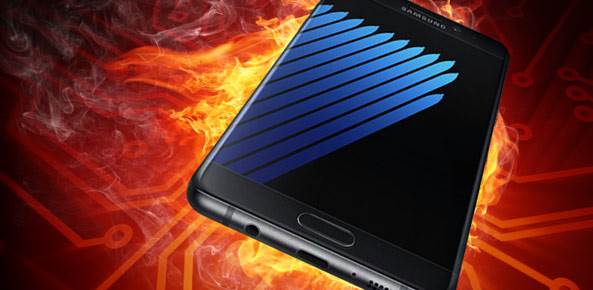
Executives with Samsung Electronics today outlined a number of strategies, which could include splitting the company two, to boost its value in the wake of “multiple challenges” in 2016. Those challenges have included its costly failure with the Galaxy Note 7 smartphone, which was recalled after widespread problems with battery overheating and fires.
While Samsung expects to take a short-term hit to profits of more than $5 billion from the Note 7 recall, the company plans to enhance shareholder returns through increased and quarterly dividend payments starting in the first quarter of next year, executives said. At the same time, the company also intends to continue investing in research and development to drive new innovations in semiconductors, smartphones and other core technologies in coming years.
Meanwhile, Samsung has engaged consultants to look into a possible reorganization of the company’s structure, a review process that could take up to six months to complete. That decision comes on the heels of calls from some investors for Samsung to split the company in two.
Continued Focus on Tech Innovations
During a strategic update conference call with investors earlier today, CEO and vice chairman Oh-Hyun Kwon acknowledged that Samsung Electronics has “faced multiple challenges in 2016” and added that the global economic outlook for 2017 appears “uncertain.” Despite that the company plans to continue working to develop new technologies in a number of key areas, he said.
In addition to semiconductors and smartphones, Samsung’s R&D is also expected to keep focusing on artificial intelligence, virtual reality, flexible screen technologies and smart automotive technologies.
Earlier this month, Samsung said it was acquiring the automotive technology company Harman International Industries for around $8 billion. Expected to close sometime in mid-2017, the deal is aimed at boosting market opportunities in connected car technologies.
“We believe this market opportunity will be worth over $100 billion a year by 2025,” Samsung president and chief strategy officer Young Sohn said in a Nov. 14 call about the transaction. “We estimate the percentage of connected cars will more than double in the next 10 years to nearly 90 [percent], and electronic content will increase from 29 [percent] to 38 [percent] of car’s value. The potential is clear, but the challenge is how best to enter this market.”
Sohn added, “We conclude that organic growth will not get us where we want to go fast enough. By acquiring Harman, which is the market leader, we’ll immediately achieve critical mass.”
Note 7 Investigation Is Ongoing
Meanwhile, sources familiar with Samsung Electronics said the company plans to release the final findings of its Galaxy Note 7 investigation “within the year,” The Korea Herald reported today. The probe led by technology and product safety experts was launched on Nov. 11.
“While recalling the phones for safety reasons, Samsung has continued its own investigation into the exploding phones,” the paper reported. “Batteries are considered the ignition point but diverse factors are believed to have caused the explosions.”
The Galaxy Note 7 investigation could still be under way when Samsung launches its next flagship smartphone, the Galaxy S8, sometime early next year. Despite the failure of the Note 7, a Reuters/Ipsos poll recently found that Samsung customers remain about as loyal to the brand as iPhone users do to Apple, with 91 percent of respondents saying they are likely to buy another smartphone from Samsung.

![[Interview] The Technologies Bringing Cloud-Level](https://loginby.com/itnews/wp-content/uploads/2025/11/1763822314_Interview-The-Technologies-Bringing-Cloud-Level-238x178.jpg)





